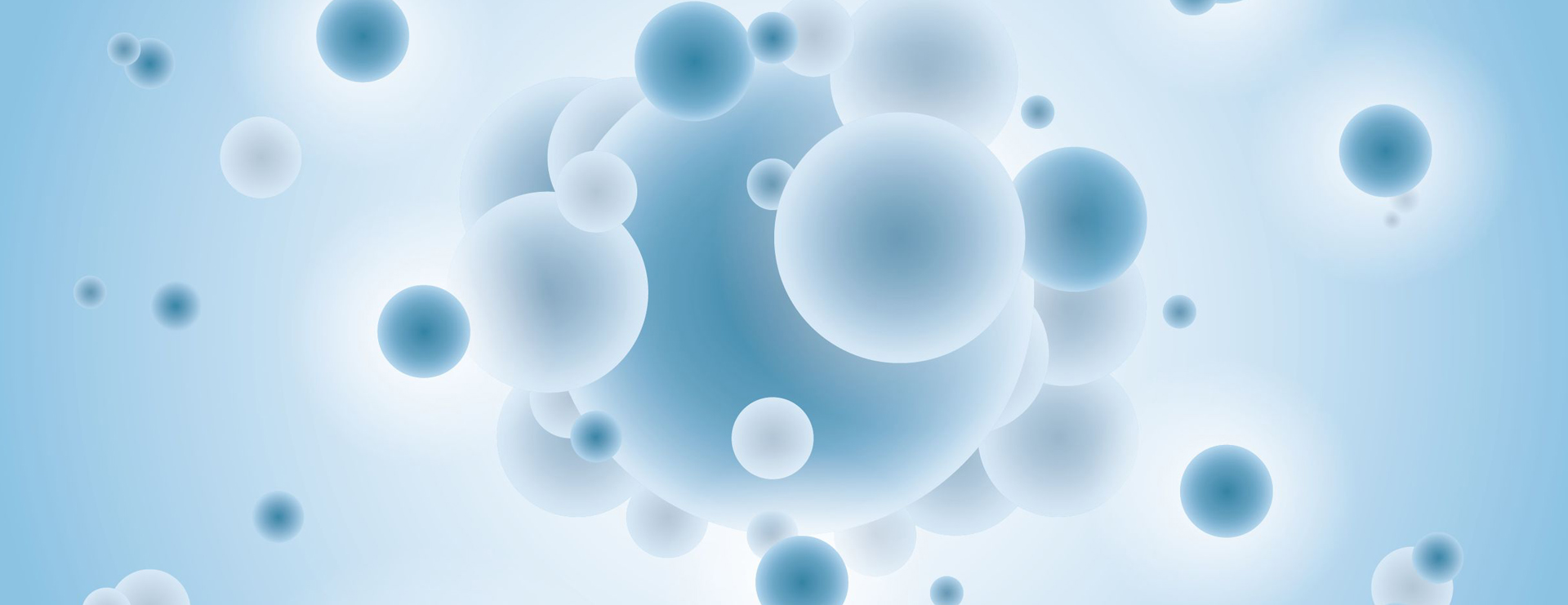PCOS and Male Sex Hormones / Hyperandrogenism
Both men and women produce male sex hormones such as testosterone. In women with PCOS (Polycystic Ovarian Syndrome), levels of male sex hormones (androgens) are abnormally high and can cause many of PCOS’s most distressing symptoms. PCOS is the most common reason for hormonal imbalance and high androgens in women, but other possible causes should be ruled out. This page examines Hyperandrogenism (elevated levels of male sex hormones) and its relation to Polycystic Ovarian Syndrome (PCOS),that transcends being more than just an endocrine disorder since it impacts many facets of a woman’s life. Polycystic Ovarian Syndrome (or Polycystic ovary disorder (PCOD) as it’s also called) can be often be mitigated by targeting Insulin Resistance through healthy diet, regular exercise, and targeted nutritional supplements and/or prescription drugs
+ Click here to learn about the all natural PCOS 5-Element Solution
+ Click here to read more articles about PCOS and Hormones
Causes
PCOS Hormones and Hyperandrogenism Issues
Before we discuss male sex hormones, it’s important to look at what impacts PCOS – Insulin Resistance. Insulin is very important because it’s responsible for regulating the cells of your body. It controls the levels of carbohydrates (starches and sugar), fats (lipids), and proteins. Insulin Resistance is a condition in which your body’s cells become resistant to the effects of insulin, which can increase the risk of type 2 diabetes and cardiovascular disease. Insulin Resistance can also cause many of the symptoms you’ll find with PCOS, like hyperandrogenism, which is elevated levels of androgens (male sex hormones).6 In fact, a UCLA School of Medicine study showed approximately three-fourths of patients with PCOS diagnosed by the National Institutes of Health 1990 criteria have evidence of hyperandrogenemia.9 Furthermore, a University of Chicago study set  out to determine the relationship of antimüllerian hormone (AMH) levels to polycystic ovaries and ovarian androgenic function. In this study, “They concluded that AMH levels are independently related to ovarian androgenic function and polycystic ovaries. Very high AMH levels are specific but insensitive for PCOS. In the absence of hyperandrogenism, moderate AMH elevation in women with normal-variant polycystic ovaries seems to indicate an enlarged oocyte pool.”8
out to determine the relationship of antimüllerian hormone (AMH) levels to polycystic ovaries and ovarian androgenic function. In this study, “They concluded that AMH levels are independently related to ovarian androgenic function and polycystic ovaries. Very high AMH levels are specific but insensitive for PCOS. In the absence of hyperandrogenism, moderate AMH elevation in women with normal-variant polycystic ovaries seems to indicate an enlarged oocyte pool.”8
Ovaries seem to be sensitive to high blood levels of insulin, and they usually respond by overproduction of male hormones (androgens) like testosterone, which can result in Polycystic Ovarian Syndrome symptoms. In your body, various glands are present and two systems carry out hormonal regulation of the endocrine system and the exocrine system (glands with ducts). For our purposes of exploring PCOS causes, we’ll focus on the endocrine system.
Understanding the Endocrine System and Sex Hormones
Endocrine glands are ductless glands that regulate the body’s mechanisms. They secrete hormones directly into your blood. The main endocrine glands include the pancreas, ovaries, testes, thyroid gland, pituitary glands and adrenal glands. A sex hormone secreted by the gonads (ovaries in females and testes in males) regulates sexual functions, such as development of reproductive organs and regulation of the reproductive cycle. Estrogen and testosterone are examples of sex hormones secreted by these gonads. These hormones influence the secondary sex characteristics (for example, pitch of voice, body shape contour, and mammary development).
The main sex hormone in women is estrogen, although it exists in males in low quantity since it’s essential for reproduction. One of estrogen’s main purposes is to regulate the menstrual cycle, which is why it’s found in a higher quantity in females. Similarly, male sex hormones are called androgens, and the main androgen is testosterone.
On average an adult male produces about 7 to 8 times more testosterone than an adult human female.1 It helps in the development of male tissues such as prostate and testis. It also enhances growth of beard and axillary (underarm) hair as well as thickening of the skin and increasing the mass of bone and muscle. Therefore, many endocrine syndromes, like PCOS, are linked to higher than average levels of these hormones.
In short, PCOS is a condition characterized by imbalances of the sex hormones (i.e., hyperandrogenism, ovarian dysfunction, polycystic ovaries, etc.).2 Since ovaries are found only in females this syndrome is restricted to females. When the syndrome occurs in a woman it can result in many symptoms, like changes in the menstrual cycle (absent or infrequent menstrual periods also known as amenorrhea), difficulty getting pregnant, and small cysts in the ovaries.3
Typically, the following sex hormones are elevated in Polycystic Ovarian Syndrome patients:4
- Testosterone, the main androgen in males.
- Androstenedione, which is produced in the adrenal gland and the gonads, and helps in the production of estrogen and testosterone.
- DHEA-S (Dehydroepiandrosterone), which is also produced by the adrenal glands and used to make male and female sex hormones.
- Prolactin (also known as Luteotropic hormone), which helps female lactation.
- LH (also known as Luteinizing hormone). Elevated LH levels stimulate the ovaries to produce too many androgens.
Aside from PCOS, imbalances in these areas can also have serious health risks like:
- Higher risk of endometrial cancer and breast cancer.
- Obesity-related issues such as diabetes, cardovascular dysfunctions, and high cholesterol and high blood pressure levels.
- Infertility in females.
Symptoms
What You Might Experience with Male Sex Hormone Imbalance
Women are usually diagnosed with PCOS in their 20’s or 30’s, but this syndrome can occur in teenagers or when a girl starts her first menstrual cycle. It’s also genetically inherited so it has a habit of ‘running in families’.
When examining PCOS, it’s important to understand some points regarding ovulation. One of the basic components of the female reproductive system is follicles composed of a roughly spherical accumulation of cells found in the ovaries known as ‘eggs’. During each menstrual cycle, one or more eggs are released (also known as ovulation). In Polycystic Ovarian Syndrome though, the eggs in these ovaries do not undergo maturation and the release of these eggs can cease, forming small cysts in the ovary. This can contribute to infertility.5

In addition to infertility, PCOS is often associated with other problems such as:
- Polycystic ovaries
- Abnormal hair growth
- Acne
- Obesity
- Sleep apnea
- Acrochordons (known as skin tags, which are harmless but annoying flaps of skin)
- Acanthosis nigricans (dark, thick folds of skin that feel like velvet and often develop along your neck, groin, underarms, or other creases of your skin).
- Diabetes
You might not have all of these symptoms. In fact, although the condition is called Polycystic Ovarian Syndrome, you might not have a single ovarian cyst. So, likewise, if you’re suffering from Hyperandrogenism, you might have some, but not all, of the following symptoms:
- Menstrual cycle fluctuations, like absent periods, irregular menstrual cycles, or light or heavy bleeding that varies monthly.
- Deepening of the voice.
- Decreased breast size.
- Growth of increased body hair on the chest, mainly around the nipples, and the face and abdomen.
- Swelling of the clitoris.
- Male pattern baldness (thinning of the hair on the head).
During your PCOS examination, obviously the pelvic region is taken under consideration. Enlarged ovaries and clitoris are usually seen. Other factors like obesity, high cholesterol, high blood pressure, and diabetes are common findings too. In order to determine your risk factors your abdominal circumference, weight, and BMI are helpful to know. During the diagnosis of Polycystic Ovarian Syndrome your doctor might test for estrogen, luteinizing hormone, follicle stimulating hormone, and male hormones. Pregnancy, lipid levels, prolactin levels, and fasting glucose are also often tested.
The good news is there are ways to combat these symptoms. Diet and exercise, as well as prescription drugs such as Metformin (to regulate the menstrual cycle), and Clomifene (to induce ovulation)7 can help many PCOS sufferers. Knowing what treatments are available is important when battling PCOS.
Treatment Options
Medical Treatment Options for PCOS Hormonal Imbalance
Many medications have been known to treat menstrual cycles and hormonal imbalances, such as birth control pills and progesterone pills. Metformin is a medicine that increases insulin sensitivity, so for PCOS patients it can sometimes improve the symptoms of the menstrual cycle and help with weight loss.
Another drug, Clomifene, is used to encourage ovulation. Some doctors turn to pelvic laparoscopy to identify and treat infertility and anovulation, in which a section of the ovary is removed or holes are drilled in the ovary/ovaries. Although these effects are often temporary, women suffering from this syndrome have a greater chance at conception when combined with the right medical or surgical treatments.
However, if you’re a woman who wants a more non-invasive and holistic approach to PCOS wellness, there’s good news. You don’t have to suffer in silence. You have other options available that you can start doing immediately.
Natural Therapies
Natural Therapies for Androgen Excess in Polycystic Ovarian Syndrome
 Reducing the need for insulin is the first step if you want to manage your Insulin Resistance, which is an influencing factor of PCOS. It starts with a change in diet. Insulite Health suggests you start a diet that is high in non-starchy vegetables and low in simple carbohydrates, fats, and sugars. Complex carbohydrates are necessary for a healthy PCOS diet; however, as with most foods you should eat them in moderation.
Reducing the need for insulin is the first step if you want to manage your Insulin Resistance, which is an influencing factor of PCOS. It starts with a change in diet. Insulite Health suggests you start a diet that is high in non-starchy vegetables and low in simple carbohydrates, fats, and sugars. Complex carbohydrates are necessary for a healthy PCOS diet; however, as with most foods you should eat them in moderation.
As for specific PCOS nutrition requirements, you should consider the glycemic index of the foods you eat. You’ll find that foods high on the glycemic index tend to raise blood sugar and make Insulin Resistance worse.10 To avoid further complications, meals that are low on the glycemic index are best when combating Polycystic Ovarian Syndrome.
In addition to diet also consider weight loss. Reports have shown that weight loss can increase the speed at which blood cells absorb sugar. This can be attributed to a higher degree of sensitivity of these cells to insulin, and that’s an important goal when managing Insulin Resistance. It’s significant to realize that losing weight can help with treating diabetes, high cholesterol, and high blood pressure too. In fact, just as little as a 5-percent weight loss might help you with imbalanced hormones and infertility. To learn more about Insulin Resistance and PCOS explore our website and talk to one of our experts. We’re dedicated to helping you manage Insulin Resistance and PCOS.
Next Steps
- Take the PCOS Quiz! Get your score and assess your hormone health risks.
- Join our Facebook Sisterhood Group Pose your questions to this group of like-minded women. Get the answers to your questions and the support you need.
- Checkout the Hormone Reset. Guided Practices to eliminate anxiety, lose weight and boost energy.
We are committed to helping women reverse their symptoms of hormone imbalance – a major cause of excess weight gain, adult acne, unwanted facial hair, depression, anxiety, and heartbreaking female infertility.
©Insulite Health empowers women with hormone imbalance to transform their lives through a process of healing with the Natural Hormone Solution –a complete solution for helping women reverse the symptoms hormone imbalance..

